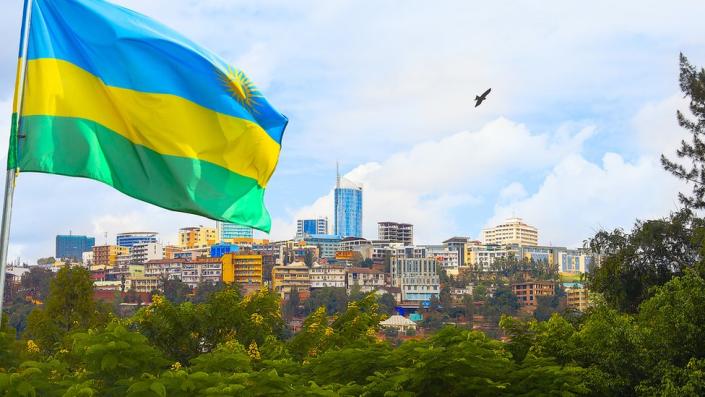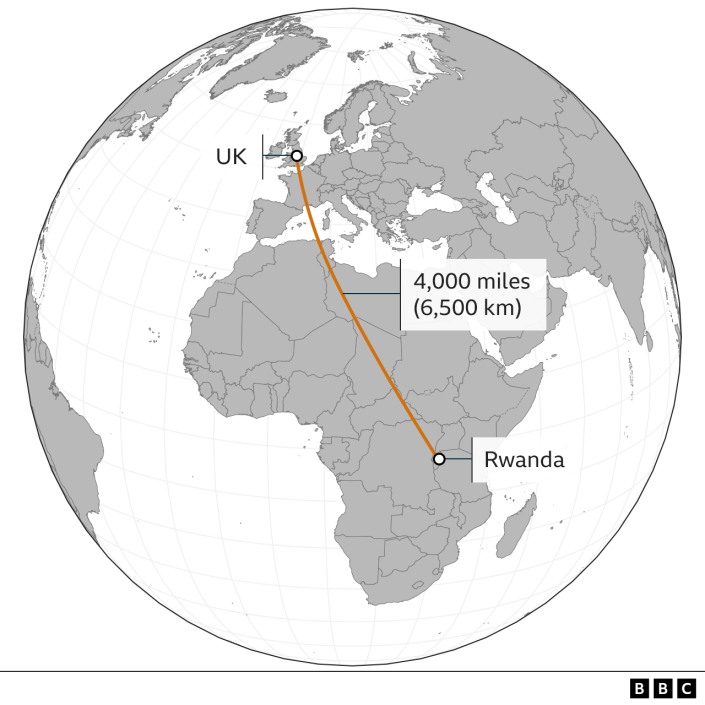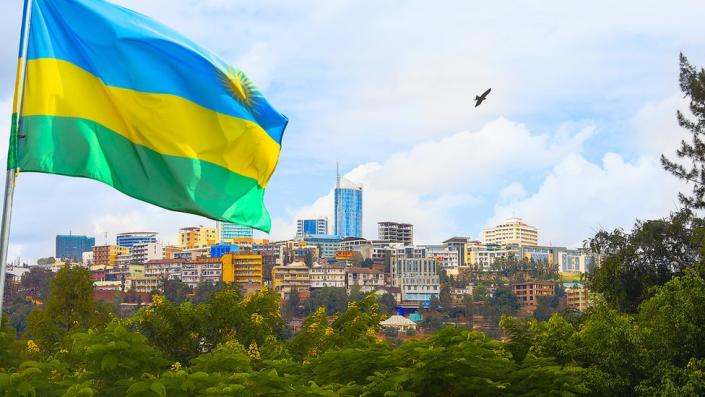
The High Court has ruled that the government’s Rwanda asylum plan is legal, but the decision is likely to face further challenges in the courts.
The government says the measures would reduce numbers crossing the English Channel, but instead numbers have risen.
What is the Rwanda asylum plan?
The five-year trial will see some asylum seekers who arrive in the UK sent to Rwanda on a one-way ticket, to claim asylum there.
They may be granted refugee status to stay in Rwanda. If not, they can apply to settle there on other grounds, or seek asylum in a “safe third country”.
The government says it will deter people arriving in the UK through “illegal, dangerous or unnecessary methods”, such as on small boats which cross the English Channel.
However, the numbers crossing have not fallen since the policy was announced on 14 April. More than 44,000 people have already used this route to come to the UK this year, the highest figure since records began.


What does the High Court ruling mean for the Rwanda plan?
Earlier in 2022, charities, campaign groups and lawyers representing asylum seekers launched a legal challenge against the government’s Rwanda policy. They argued that Rwanda is not a safe destination for asylum seekers and that the scheme breaks human rights laws.
On 15 December, the High Court ruled that the government’s Rwanda plan is legal – but this does not mean that flights can go ahead straight away.
The judge added that the scheme does not breach the UN’s Refugee Convention or human rights laws.
However, the High Court also ruled that the cases of eight individual asylum seekers – who were due to be sent to Rwanda earlier this year – will have to be reconsidered.
It is expected that the groups who lost their legal challenge will appeal against the ruling. The decision on whether to allow an appeal has been adjourned until 16 January 2023.
Home Secretary Suella Braverman has previously said it was her “dream” to have a Rwanda flight depart before Christmas.
What is an asylum seeker?
The UN Refugee Agency defines an asylum seeker as someone who has applied for shelter and protection in another country.
A refugee is a person who has fled conflict or persecution in their own country.
The legal rights of refugees are protected by international law. However, it is up to host countries to decide whether an asylum seeker is granted refugee status.
In the year to September 2022, the UK received 72,027 asylum applications, the highest number for nearly 20 years. Of these, more than 17,000 people and their dependants were granted a form of protection.
How many people could be sent to Rwanda?
The UK government previously said “anyone entering the UK illegally” after 1 January 2022 could be sent, with no limit on numbers.
Rwanda says it can process 1,000 asylum seekers during the trial period, but has capacity for more.
Under the deal, Rwanda can also ask the UK to take in some of its most vulnerable refugees.
However, no asylum seeker has actually been sent to the country. The first flight was scheduled to go in June, but was cancelled after legal challenges.
Privilege Style – the airline which was scheduled to take asylum seekers to Rwanda in June – has said that it will withdraw from its contract with the Home Office, following a campaign by refugee charities.


How much will the plan cost?
Costs would include flights to Rwanda, food, accommodation, access to translators and legal advice. Removing people from the UK by charter flight cost more than £13,000 per person in 2020.
When the policy was announced, former Home Office Minister Tom Pursglove said there would be a £120m upfront payment to Rwanda, to be followed by further payments as it handled more cases. In October 2022, The Times reported that the government has paid Rwanda an extra £20m, bringing the total cost to £140m.
Mr Pursglove said the cost would be “similar to the amount of money we are spending on this currently”, and that “longer term, by getting this under control, it should help us to save money”.
The UK’s asylum system costs £1.5bn a year. Almost £7m a day is spent on hotel accommodation for refugees and asylum seekers.
Critics say the daily cost is so high because of the time taken to decide on applications, and a ban on asylum seekers working while waiting for confirmation of their status.




